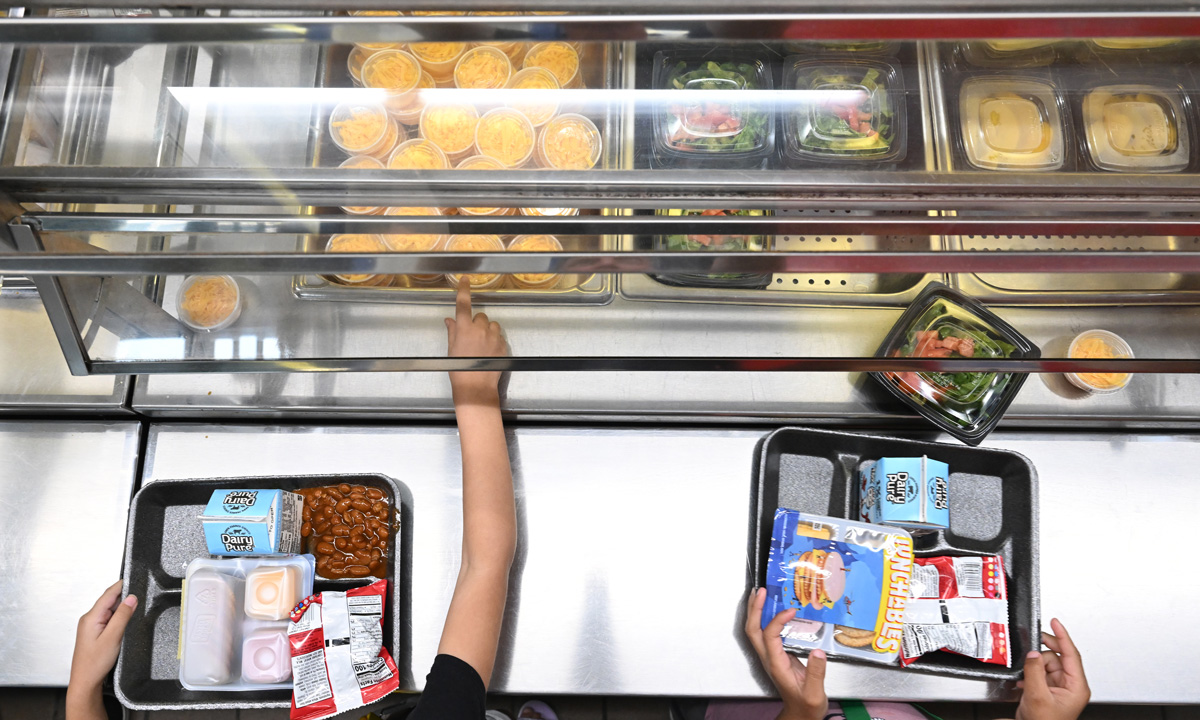With End of Federal Program, Kansas Students Face Skyrocketing School Meal Debt
Kansas advocacy group outlines issues with the state’s student meal debt policy, potential solutions in new report.

Get stories like this delivered straight to your inbox. Sign up for The 74 Newsletter
TOPEKA — School lunch debt has snowballed in the year following the end of pandemic-era free meal programs. An advocacy group warns the debt accumulation could hurt and humiliate Kansas children in a recently released report.
“When Kansas kids are hungry, they can’t learn,” said Haley Kottler, director of a Kansas Appleseed campaign against child hunger. “Ensuring kids have what they need to thrive is imperative to our students’ success– in and out of the classroom.”
To create the report, Appleseed staff contacted the state’s 286 public school districts, receiving responses from about 20%. To fill in the gap, staff reviewed policies available on public school district websites, among other data sourcing.
The report follows the end of the free federal school meals program, which paid for breakfast and lunch for students at all income levels. The program was in place from March 2020 through June 2022, allowing Kansas’ 480,000 public school children access to free meals.
Since the program ended, families in the state have experienced a six-fold increase in school meal debt. Student lunch debt reached $23.5 million in 2023, according to Appleseed. For comparison, the state reported $4.5 million in school lunch debt in 2019. Increasing inflation and economic instability during and after the COVID-19 pandemic could play a factor in the increased debt.
Approximately 41% of Kansas students were signed up for free meals through the National School Lunch Program during the 2022-2023 school year, and another 7% received reduced school meals, but families must remain under a certain income threshold to be eligible for these reduced-price programs.
For example, a family of four has to make under $39,000 a year to qualify for free meals, and under $55,500 to qualify for reduced-priced meals, the report notes.
When the debt from school meals accumulates, only about 22% on average is paid off by parents, according to national statistics on school meal costs. Despite low rates of payment, more than 40% of Kansans school districts use debt collection agencies, turning unpaid meal debt over to collection agencies, small claims courts, or the Kansas debt offset program— a measure that can have a long-lasting negative effect on a family.
Students themselves are singled out in the cafeteria when their families cannot afford to pay. Less than 5% of school districts in the state have documented policies allowing students with meal debt to continue receiving the same meal as fellow students.
Approximately 60% of school districts have documented policies allowing children an alternate meal, though the contents of the meal vary greatly across districts. Most districts offer either a cheese or peanut butter sandwich to these students, but others offer just a granola bar and milk, or canned fruit and crackers.
School districts that have higher rates of meal debt typically end up paying it through the district’s own funds, the report notes.
With this additional expense, many of the state’s school districts have been left in a “precarious financial position.”
“On average, it currently costs more to produce a school meal than school districts are charging or being reimbursed for,” the report reads. “This is likely an even larger challenge now that increased federal reimbursements for school meals have expired.”
The organization’s recommendations include ending debt collection practices, having the state subsidize portions of the lunch program and changing unpaid meal fee policies that humiliate students in the cafeteria.
“I look forward to working with school districts and community partners to ensure that every child in every district has consistent access to school meals, said Martha Terhaar, a Kansas Appleseed advocate campaigning against child hunger. “Together, we can build policies that guarantee every student is fed.”
Kansas Reflector is part of States Newsroom, a network of news bureaus supported by grants and a coalition of donors as a 501c(3) public charity. Kansas Reflector maintains editorial independence. Contact Editor Sherman Smith for questions: [email protected]. Follow Kansas Reflector on Facebook and Twitter.
Get stories like these delivered straight to your inbox. Sign up for The 74 Newsletter

;)